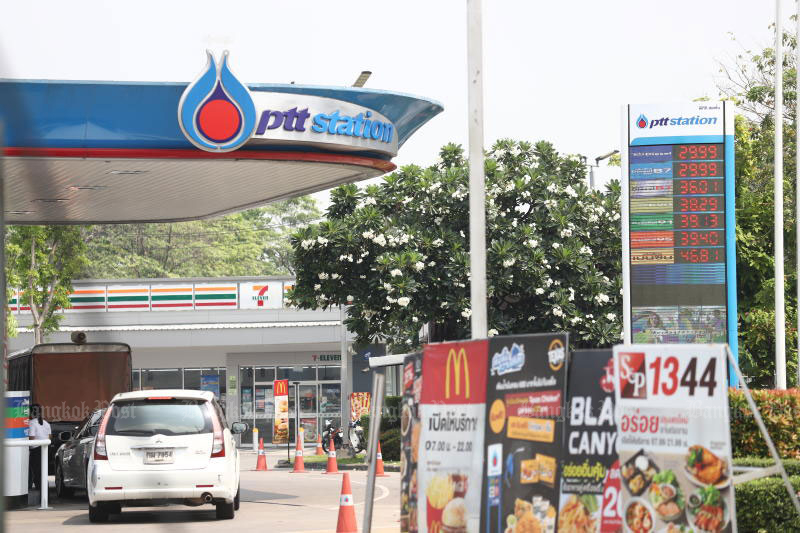
The National Energy Policy Committee (NEPC) has resolved to lift borrowing limits of the state Oil Fund to allow for management flexibility and approved guidelines to address surging fuel prices.
Chaired by Prime Minister Prayut Chan-o-cha, the NEPC met on Wednesday to review plans to tackle soaring energy prices and decided to remove the borrowing limits set at 40 billion baht, said energy permanent secretary Kulit Sombatsiri.
The measure, which will be submitted to the cabinet next week, would also require legal amendments, he said. Currently, the law governing the Oil Fund does not allow its management to seek loans worth more than 40 billion baht.
"Even though the borrowing limits would be lifted, the government would try to cap borrowing at no more than 40 billion baht as it would affect public debt ratios,'' he said, adding that it would depend on the situation at hand.
Mr Kulit said the NEPC also approved guidelines to tackle soaring global oil prices which would be addressed tomorrow by Deputy Prime Minister and Energy Minister Supattanapong Punmeechaow.
These guidelines were designed for three scenarios of oil price hikes: when prices range between US$100-130 (3,300-4,300 baht) a barrel; when prices rise $131-150 a barrel; and when prices exceed $150 a barrel.
The government's policy to use the Oil Fund to maintain the retail prices of diesel at 30 baht per litre is based on global oil prices of $100 per barrel, he said, adding prices have now risen to $120 a barrel.
Speaking after the NEPC meeting, Gen Prayut said the government would do its best to maintain lower fuel prices and was reviewing measures to alleviate impacts on the public as much as possible.
He said the meeting explored several scenarios including how long the government could subsidise diesel and keep the retail price at no more than 30 baht per litre, and what it could do if the price kept going up.
He said the government would peg the retail prices of diesel as long as it can but said it had to take into consideration the possibility of global prices soaring to $130-180 a barrel. He said the government was examining several measures including taxes and financing to help the oil fund which is limited.
When asked if the government would maintain the retail price of benzene, the prime minister said the government would need to come up with measures to address the hardship of specific groups. "We'll consider what is appropriate and the diesel situation is bad enough. We'll have to find something to help each specific group," he said.
Gen Prayut said he also called a meeting with the national committee on minerals to discuss how to reduce imports of expensive fertilisers or raw materials for fertiliser production.
The Commerce Ministry may consider allowing operators to raise the prices of fertilisers and animal feed as production costs increase.
Commerce permanent secretary Boonyarit Kalayanamit said officials have discussed the impact of the Ukraine-Russia crisis on the prices of chemical fertilisers and raw materials for animal feed, especially wheat, which must be imported.
He said prices have sharply increased and the ministry is reviewing measures to relieve the impact on operators such as lowering production costs. With Russia being a major producer of chemical fertilisers and Ukraine a major exporter of wheat, the prices of these two products have soared since the conflict broke out.
"If production costs rise significantly, we'll have to prevent shortages but we'll have to make sure it won't adversely affect consumers," he said.